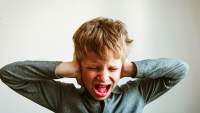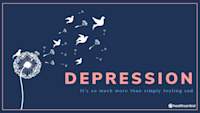你今天感觉怎么样?如果您发现自己读这篇文章,可能很糟糕。也许你已经感觉无精打采,下来了很多的时间比你预期的,而且它让你担心,你可能有抑郁症。也许你刚刚收到了临床抑郁症的诊断和你正在寻找的答案。我们懂了。因此,许多贡献者HealthCentral感到就像你现在要做的。但是,我们不会让抑郁症你吞没。我们也不会与一堆虚假的承诺和不准确的信息(这是你的Facebook饲料是)的轰炸你。在这里,我们分享应对抑郁症的现实,以及来自顶尖的医生,最成功的治疗和情绪提升生活方式的改变,专家的意见。
Our Pro PanelDepression
We asked some of the nation's top depression experts to bring you the most up-to-date information possible.

Charles B. Nemeroff, M.D., Ph.D.Chief Medical Officer of the Anxiety and Depression Association of America, Professor and Chair of Psychiatry at Mulva Clinic for the Neurosciences

Jennifer L. Payne, M.D.Director of the Women's Mood Disorders Center and Associate Professor of Psychiatry

Carol A. Bernstein, M.D.Psychiatrist, Vice Chair for Faculty Development and Well-Being in the Departments of Psychiatry and Obstetrics and Gynecology
What Is Depression, Really?
这是正常的经验悲伤。(WHOdidn’t想哭的时候辛巴不能醒木法沙?)但是,与典型的悲伤或悲痛,时间也不会痊愈Major Depressive Disorder (MDD), the term for clinical depression, which most people just call “depression.” It’s a common mental health condition that shows up like an unwanted houseguest and refuses to leave. This extended period of sadness or emptiness comes with a constellation of other symptoms, like exhaustion, sleep trouble, a shrinking appetite, overeating, sudden crying spells, and sometimes thoughts of suicide. Symptoms range in severity and must last for two weeks or more to receive an MDD diagnosis, though it’s rare than an episode would only last for that short time. Most people have symptoms for six months to a year, and sometimes, they can last for years.
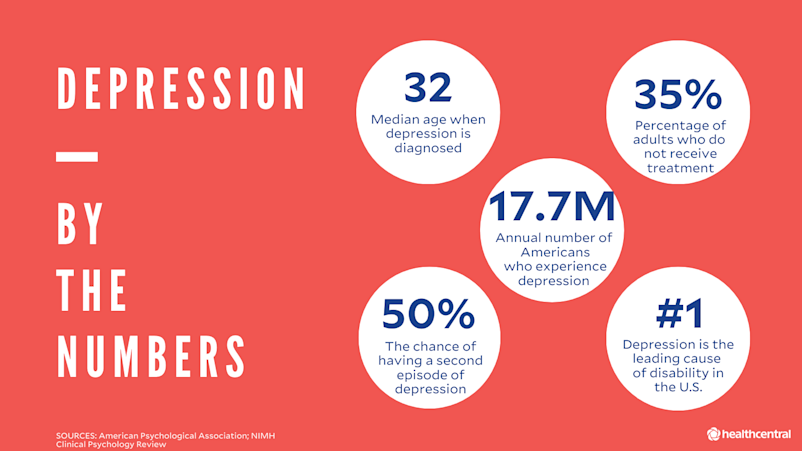
Without treatment, depression won’t fade away on its own. Even if you do white-knuckle it through your first episode of depression,your chance of another recurrence是more than 50 percent. If you’ve had two episodes, that chance shoots up to80 percent。意思是,你将要处理这个宜早不宜迟。
One hallmark of depression is an inability to experience pleasure, which is literally no fun. Losing interest in things you once enjoyed often means that your capacity to function at work and home takes a dive. In fact, depression is one of the leading causes of disability in the U.S., as 7.2% of Americans—17.7 million people—experience Major Depressive Disorder, each year.
Other Types of Depression
We talked about MDD (a.k.a. depression) butthere are other types of depression。They include:
- 持久的抑郁症。This is a chronic form of depression, formerly known asdysthymia。有时,人们把它称为“高功能”或“微笑”抑郁症。虽然症状并不严重的抑郁症,但持续两年longer。People with PDD might feel like they’ve always been depressed. (In cases of “双抑郁症,” people experience severe episodes of MDD within their usual state of chronic depression.)
- Seasonal Affective Disorder (SAD).arou季节性抑郁症状开始和结束nd the same times every year. Most people get depressed in cold, dark winter, but some people’s mood plummets in summer.
- Premenstrual Dysphoric Disorder (PMDD).Here, depression symptoms are tied to the luteal phase of the menstrual cycle, starting about one week before your period and ending just after your period. Though many of the symptoms mirror PMS—irritability,high anxiety, frequent crying—they’re much more severe. Theyinterrupt你的工作能力,破坏人际关系,并可能导致自我伤害和自杀的念头。在2013年加入这个条件如抑郁症的DSM-5,精神障碍的官方指南的形式。
- Peripartum Depression.New mothers with this disorder typically develop symptoms of depression and even psychosis within a few weeks of giving birth. It used to be calledpostpartum depressionand many people still use the term interchangeably. (In some cases, symptoms start during pregnancy; other times, when the baby is several months old—hence the name change.)
- Perimenopausal Depression.In midlife (specifically, the years leading up tomenopause), people experiencing this disorder have typical depressive symptoms plusperimenopause symptomslike hot flashes and night sweats.
- Substance/Medication-Induced Depressive Disorder.Substance abuse (酒精,鸦片制剂,镇静剂,安非他明,可卡因,迷幻剂,etc.) or taking some medications, likecorticosteroidsorstatins, can trigger the symptoms of depression. If substance use (or withdrawal from using) is causing your symptoms, you may have this version of depression.
- Disruptive Mood Regulation Disorder.Achild with this juvenile disorder是grumpyandbad-temperedmost of the time. They have severe, explosive outbursts with parents, teachers, and peers several times a week. Their overreactions are extreme and inconsistent with their developmental level.
Depression strikes people at a median age of 32, but it's important to remember that depression can happen to anyone, at any age, of any race, gender, or political affiliation. One out of every six adults will experience depression at some time in their life. Fortunately, depression is treatable. That’s why, at the first hint of symptoms, it’s important to make an appointment with a mental health professional who can help determine whether you have depression, and if so, which type—and most importantly, which treatment is appropriate for you.
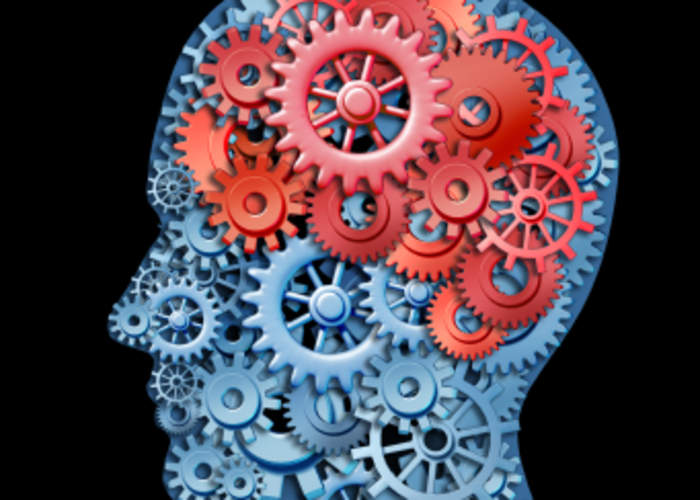
The Biggest Myths About Living with Mental Illness
Those that have a mental illness know that these myths are exactly that: myths. Take a look for yourself.
What Causes Depression?
你不会喜欢这个答案,但没有人确切知道。也就是说,在过去的几十年里,当时的说法是,抑郁的人在他们的大脑失衡化学,更具体地说,水平低neurotransmitterslike norepinephrine, epinephrine, and dopamine, which help regulate mood, sleep, and metabolism. We now know it's a little more complicated than that.
Certain circumstances put people at a higher risk of depression, including childhood trauma, other types of mental illness and chronic pain conditions, or a family history of depression, but anyone can get depressed.
Scientists informed by decades of research believe that the following factors also up your risk of becoming depressed, but they can’t prove causality. Still, they can play heavily in the development of depression, so it’s important to be aware of them:
- Genetics.Research shows thathaving a first-degree relative with depression(父母、兄弟姐妹或孩子)让你two-to-three times more likely to have depression tendencies.
- Traumatic life events from childhood,如虐待或忽视。
- Environmental stressors,like a loved one’s death, a messy divorce, or financial problems.
- Some medical conditions(e.g., underactive thyroid, chronic pain). Per science, the relationship between these physical conditions and depression is bidirectional, so there’s a chicken-or-egg thing going on because they feed each other.
- Certain medications,including some sedatives and blood pressure pills.
- 荷尔蒙的变化,like those that come with childbirth and menopause.
- Gut bacteria.There has been alinkestablished between the microbiome and the gut-brain axis, but it’s only just starting to be studied.
While there's no definitive cause for depression, it is definitely not your fault. Find out about the brain changes that can lead to depression.
Read MoreDo I Have the Symptoms of Depression?
想知道是否your feelings qualify for clinical depression? Those with MDD experience five or more of the below symptoms during the same two-week period, and at least one must be depressed mood or loss of pleasure. The symptoms would be distressing or affect daily functioning.
- Youfeel downmost of the time.
- The things you liked doing no longer give you joy.
- Significantweight loss (without dieting)orweight gainor feeling consistently muchless hungry or hungrierthan usual.
- Having ahard time getting to sleepand staying asleep or oversleeping.
- A molasses-like slowdown of thought, becoming a couch potato, or spending days in bed. (This should be noticeable to others, not just subjective feelings of restlessness or slothiness.)
- So. So. Tired. You’reso exhaustedyou can’t even.
- Feeling worthless a lot of the time, even if you haven’t done anything wrong.
- Being superdistracted, indecisive,and unable to concentrate.
- Recurrentthoughts of death or suicide(with or without a specific plan to actually do it). If you need help for yourself or someone else, please contact the National Suicide Prevention Lifeline at 1-800-273-TALK (8255).
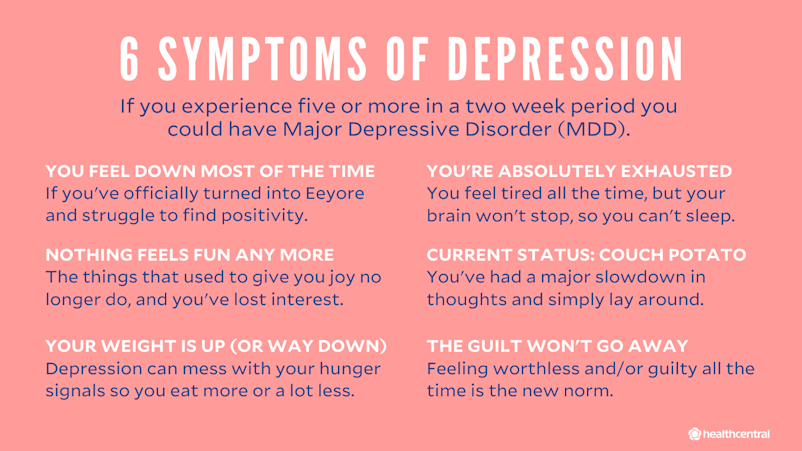
How Do Doctors Diagnose Depression?
当你有一个抑郁症发作,它可能觉得你注定要觉得可怕永远。这不是真的。这是你的郁闷大脑要你想什么。最难的步骤是忽略的感觉,使与医生和/或心理健康专家,预约比如心理医生或精神科医生。心理健康专家,是唯一的专家,可以帮助你计算出,如果你抑郁。
Unfortunately, there’s no easy blood test that can determine if you have depression, though that would make diagnosis a lot easier. (Get on it, science!) TheDSM-5helps clinicians make that call with a targeted list of common symptoms. To be diagnosed with MDD, patients must experience five or more of the above symptoms (see “Do I Have the Symptoms of Depression?”)—one must be depressed mood or loss of pleasure—during a two-week period.
即使你的症状匹配到MDD,不过,你的医生应首先排除任何潜在的医学原因。一些条件,如甲状腺疾病和维生素缺乏症,抑郁症可以模仿的症状。其次,考虑你目前服用任何药物。
如果这听起来像你或你认识的人,做一个心理健康专家预约。现在。不要等待!什么是可能发生的最坏的事情?如果你觉得由当时的任命来临时更好的,你可以随时取消。如果不这样做,你已经采取措施来管理你的心理健康保存自己宝贵的时间(和不必要的痛苦)。
Each type of depression can be linked to specific symptoms. Learn more about the signs and symptoms so that you can talk to your doctor.
Read More什么是抑郁症最好的治疗?
Regardless of why you’re depressed, it’s important to get treatment before the condition starts to erode your quality of life. Studies and surveys show that most adults in the U.S. who screen positive for depression remain untreated. Don’t be one of them.
As scientists continue to hash out theories about the root causes of depression, research shows that the most effective treatment is a mix of psychotherapy, medication, and lifestyle changes. It might take a (frustratingly long) while to find the right recipe —antidepressants work differently in different people so finding the right fit often takes some trial and error. Plus, the mental health professional you’re working with will be by your side. They won’t give up and neither should you. Some of the treatment options available are:
Psychotherapy
This doesn’t mean you’ll find yourself reclined on a couch, complaining about your relationship with your mother (though it might). A psychiatrist, psychologist, therapist, or licensed clinical social worker might use a variety of techniques to help change the negative thinking, beliefs, or behaviors that exacerbate your depression and make your world seem hopeless. Types of therapy include心理动力学疗法,Cognitive Behavioral Therapy (CBT)和interpersonal therapy。
Medication
Your depression might require more than coaching.Doctors may prescribe medication includingantidepressants,mood stabilizers和/orantipsychotic pillsin order to decrease the symptoms of depression. These include:
- SSRIs (selective serotonin reuptake inhibitors)像百忧解(氟西汀),帕罗西汀(帕罗西汀),和左洛复(舍曲林)和SNRIs (serotonin and norepinephrine reuptake inhibitors)like Cymbalta (duloxetine) and Effexor XR (venlafaxine) make neuro-transmitters serotonin and norepinephrine already existing in the brain more available.
- TCAs (tricyclic antidepressants)like Tofranil (imipramine) and Norpramin (desipramine) andMAOIs (monoamine oxidase inhibitors)like Emsam (selegiline) and Marplan (isocarboxazid) are first-generation antidepressants that work similarly on neuro-transmitters, but they’re used less often because of unpleasant side effects.
- 医生也可以使用atypical antidepressants像载班或安非他酮(安非他酮)或瑞美隆(米氮平)影响血清素,去甲肾上腺素和其他抗抑郁药物独特的方式多巴胺水平。或者,他们可能会增加atypical antipsychotics, a.k.a. second-generation antipsychotics like Seroquel (quetiapine) or Abilify (aripiprazole). They’re “atypical” in that they affect dopamine and other neurotransmitters without the physical side effects, such as tics and tremors, that first-generation antipsychotics can cause.
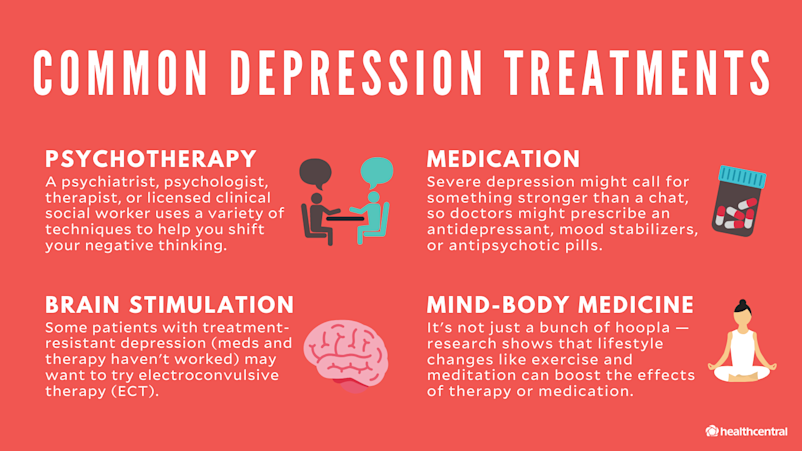
Brain Stimulation
For难治性抑郁症that doesn’t get better after exhausting psychotherapy and more than two classes of antidepressants (such SSRIs and TCAs), there are more hardcore options. Severe depression may warrantelectroconvulsive therapy (ECT), which you might remember fromOne Flew Over the Cuckoo's Nest。Fear not—modern ECT is safe, performed under anesthesia, and much less aggressive than you see in the movies.
There is alsorepetitive transcranial magnetic stimulation (rTMS)which some docs refer to as “ECT Lite”. For severe depression, some people receivevagus nerve stimulation (VNS), a surgical implant that works kind of like a pacemaker, sending electric pulses to the brain.
Other Treatment Approaches
These may include:
- For severe,难治性抑郁症, the FDA recently approvedesketamine, a nasal spray based on the party drug/anestheticketamine。Experts say it works by kicking up production ofglutamate, a neurotransmitter that helps prompt the brain to form new neural connections.
- Sadness duringseasonal depression (SAD)can be alleviated with melatonin-regulatinglight therapy。
- 产后抑郁症可与治疗Brexanolone(Zulresso),人体自身的神经类固醇四氢孕酮的IV版本。
- Research shows thatlifestyle changes像合并exerciseand mindfulnesscan amplify results of medication and therapy. Even if they aren’t foolproof mood-lifters, it never hurts to build a health-supportive routine.
Don't let depression deteriorate your quality of life. Get more info on all your treatment options.
Read MoreWhere Can I Find Depression-Related Communities?
The thing about depression is that it makes you want to roll yourself into a blanket burrito and never come out. But shutting out the world can make an already-bad situation worse by giving you free reign to neglect your needs, ruminate over your perceived flaws, and destroy any chance of forward momentum. Along with therapy and medication, finding supportive people—and connecting with them online and in real life—is a key part of taking care of yourself. Here's where to start.
Top Depression Instagrammers and Bloggers
- Tonya Ingram,@tonyainstagram,tonyaingram.com
Follow because:She has one hell of a way with words—after all, she is a poet and author. She also battles some pretty heavy stuff like depression, lives as a “lupus legend” (her words—we love) and is currently waiting on the sidelines for a kidney transplant. She takes it all day by day and shares how she gets out of bed, looks herself in the mirror, and figures out how to simply... survive.
- Scott Ste Marie,@depressiontoexpression,depressiontoexpression.com
Follow because:Immediately, he sounds like someone you want to be friends with, someone whose vibe you want to channel. A former Twitter employee and now public speaker, Scott isn’t going to guide you on some path to a complete cure—nor is he going to sugarcoat the realities of living with depression. In order to overcome your demons, Scott believes you have to come to terms with the fact that sometimes life sucks, and that’s okay.
- Kevin Hines,@kevinhinesstory,kevinhinesstory.com
Follow because:You know the saying “What doesn’t kill you only makes you stronger”? Kevin Hines is living proof. He is the only person ever to survive a suicide attempt from the Golden Gate Bridge. After a sea lion kept him afloat, he was reborn as someone who now devotes his life to making sure you’re here tomorrow—which is why he regularly uses the hashtag #beheretomorrow.
- Lola, Gina, and Nora Tash, and Nicole Argiris,@mytherapistsays,mytherapistsays.ca
Follow because:Sometimes the only way to come out of a deep dark hole is with the universal language of laughter. These girls (mostly family or like family) create endless hilarious memes that represent the real trials and tribulations of living in today’s social media-infested world. The point of it all? So you know that, as they put it, “you’re never alone and never as batshit as you think.”
- Sad Girls Club,@sadgirlsclub
Follow because:It’s not your typical reel of inspirational quotes and nod-worthy memes — though, those are sprinkled in, too. Mostly, this feed—run by women of color (including founder@ elyse.fox)-gives你如何应对抑郁症,特别是在现代的情况下,如在工作中讨论了心理健康咨询的实际(包括hashtagawkward). This feed gives you the ammo you need to shut down stigma.
- Kate Allan,@thelatestkate
Follow because:Animals make everything better — especially when they’re paired with a quirky drawing and an all-too-familiar feeling. A wolf that speaks to your soul; a fox that gives you all the feels; and a bird who tells it like it is. Run by artist, author, and anxious human Kate, this page (and the cute animals that live there) is a feel-good must-follow.
- The Sad Ghost Club,@theofficialsadghostclub,thesadghostclub.com
Follow because:Nathan, Lize, and Helen are besties—or, ghosties, as they refer to themselves—who came together to share life with mental illness from behind the computer screen. These ghosts don’t sugarcoat things, but they’re also not gloom and doom. You’ll be hooked on their graphics and positive (but not overly earnest) messages.
Top Depression-Related Podcasts
- The Hilarious World of Depression。Stand-up comedy meets a psych appointment when actors and comedians struggling with depression tell their (surprisingly funny) mental health stories to “professionally depressed”主持人约翰·莫。
- Terrible, Thanks for Asking。Author Nora McInerny, who has dealt with depression, isn’t afraid to ask the awkward questions, as real listeners share their own tales of coping with grief, despair, and anxiety.
- Jen Gotch is OK...Sometimes。Ladyboss CEO and ban.do founder Jen Gotch gets vulnerable and real every week, sharing her struggles with mental health.
- Happier with Gretchen Rubin。It’s no surprise that the author of纽约时报bestsellerThe Happiness Projecthas tons of suggestions to help you emerge from your sad cave, build positive habits, and create a happier outlook. Her slightly skeptical sister Elizabeth Craft keeps all that sunshine in check.
- Anthologies of Hope。你在这里,你正在读这篇文章,让本身就证明你还没有放弃希望。但它不只是你arehere—it’swhyyou’re here. This podcast dives even deeper into that “why” and tries to bring that to the forefront of your mind instead of the other garbage trying to pull you down. Host Rick Osowski, who has battled depression, brings a variety of guests into the fold to talk about their why.
Top Depression Support Groups and Non-Profits
- Anxiety and Depression Association of America(ADAA). This nonprofit is dedicated to the prevention, treatment, and cure of anxiety, depression, OCD, PTSD, and co-occurring disorders. Come here for new research, monthly webinars from mental health experts, educational infographics and stats, and a Find-a-Therapist database you can search by disorder. You can always find (free) support on the ADAA Online Peer-to-Peer Support Group orsupport groupiOS app for iPhone.
- 全国精神疾病联盟(NAMI)。这个非营利组织心理健康宣传组织p offering free education and support programs such as NAMI Peer-to-Peer (eight free sessions for adults with specific mental health conditions). You can also connect with other folks who have depression on this org’s online message boards and viaNAMI Connection(使用本网站找到一个每周或每月的恢复组你附近)。
- reddit的,R /抑郁症。Reddit is the hideously under-designed social website for anonymous users with a bad rep for attracting “incels” and “neckbeards.” The self-proclaimed “Front Page of the Internet” has memes, conspiracy theories, and thousands of communities called subreddits—and some of them are quite lovely. For example, the r/depression subreddit is over a decade old with more than half a million subscribers. In here, the vibe is all about empathy, support, and helpful feedback. (A最近的研究even found that visiting the subreddit caused a “positive emotion change” in users.)
- Talkspace。More like “safe space.” It’s online, it’s private, and it’s “open” 24/7. Over 1 million people use Talkspace to get matched up with one of their 5,000+ licensed therapists and then message them...as much and as often as they’d like. There are different packages depending on your needs, but the instant feedback and comfort is pretty much priceless.
- Sad Girls Club。这是一个非营利性的,一个在线社区,和Instagram的手柄(见上文)专注于精神疾病的千年和Z世代经验(抑郁,焦虑,或一些未确诊的所有计数)。他们举办的聚会IRL,您可以与类似的人联系,并尝试对艺术治疗像诗歌大满贯或刺绣类酷的扭曲。
- 写情在她的胳膊(TWLOHA)。It’s not just a nonprofit — it’s a movement. Online, at in-person events, through social media and blogs, TWLOHA creates a place for hope and healing through depression, addiction, self-injury, and suicide. People who attend their events and join this community have said they’ve felt transformed. Worth a try, yea?
Frequently Asked QuestionsDepression
What’s the difference between being sad and being depressed?
Sadness is a normal reaction to disappointment, bad news, and loss. (Remember when Jaime Lannister left Brienne of Tarth heartbroken to go canoodle with Cersei in King’s Landing?) Sadness and grief eventually let up over time, even after a devastating loss. Depression doesn’t go away, and it interferes with your ability to do what you need to do on a daily basis. Besides a gloomy mood, depressed people have other symptoms like fatigue, apathy, insomnia or too much sleep, noticeable weight change, crying jags, and (sometimes, but not always) thoughts of suicide.
How long does depression last?
To meet the clinical definition of a depressive episode, symptoms must last a minimum of two weeks (though research puts themedian durationat six months). Chronic depression (aka Persistent Depressive Disorder) lasts a minimum of two years, but often lasts much longer. Depression can hang around forever, especially when left untreated.
Do I have to see a therapist in real life for depression or can I use an app?
That depends on the severity of your depression. Meeting with a therapist in person can be inconvenient, nerve-wracking, and just plain awkward. But is it really possible to text your way to better mental health? Experts are torn on the efficacy of virtual mental health apps (a.k.a.telepsychology). Research shows that text therapy like Talkspace, one-on-one chat, or video counseling makes getting help easier than ever, especially for super-busy people, those in rural areas where docs are scarce, or those who fear the stigma of being seen at a mental health office. Many experts caution against virtual therapy for people who are seriously mentally ill, have alcohol or drug addiction, or are at risk of harming themselves or others. In those scenarios, more intensive treatment is required. To find out how to get the most out of virtual therapy, check out the美国心理协会’s guidelines对于telepsychology。
If someone is depressed will they become suicidal?
Not necessarily. But they might. Suicide is the 10th leading cause of death in the U.S. for all age groups. Depression can wear on a person’s psyche, making every minute feel like an hour, stealing sleep, and creating a sense of hopelessness. We’re not trying to freak you out, but it’s important to keep an eye open for signs of suicidal ideation, like withdrawing from social life, engaging in uncharacteristically reckless behavior (e.g. drug abuse, speeding, unsafe sex), getting their affairs in order (making a will, giving away prized possessions), or outright saying they want to die (even if it’s in a joking manner). The U.S. Department of Health and Human Services estimates that around 60% of people who die of suicide have a mood disorder like MDD, Persistent Depressive Disorder, or Bipolar Disorder. If you need help for yourself or someone else, please contact the National Suicide Prevention Lifeline at 1-800-273-TALK (8255).
- Depression & Disability Stats:Current Psychiatry Reports。(2010年)。"Overview of the Genetics of Major Depressive Disorder."https://www.ncbi.nlm.nih.gov/pmc/articles/PMC3077049/pdf/nihms254781.pdf
- Major Depressive Disorder in the U.S.:Substance Abuse and Mental Health Services Administration (SAMHSA). (2018). "Key Substance Use and Mental Health Indicators in the United States: Results from the 2018 National Survey on Drug Use and Health."https://www.samhsa.gov/data/sites/default/files/cbhsq-reports/NSDUHNationalFindingsReport2018/NSDUHNationalFindingsReport2018.pdf
- 1 out of 6 people will experience depression:Archives of General Psychiatry。(2005). "Lifetime prevalence and age-of-onset distributions of DSM-IV disorders in the National Comorbidity Survey Replication."https://www.ncbi.nlm.nih.gov/pubmed/15939837
- Depression & Brain Chemistry:World Psychiatry。(2015). "What has serotonin got to do with depression?"https://www.ncbi.nlm.nih.gov/pmc/articles/PMC4471964/
- Childhood Trauma & Depression:Depression Research and Treatment。(2015). "Childhood Trauma and Its Relation to Chronic Depression in Adulthood."https://www.hindawi.com/journals/drt/2015/650804/
- Depression and its relation to other mental disorders:JAMA Psychiatry。(2019). "Exploring Comorbidity Within Mental Disorders Among a Danish National Population."https://www.ncbi.nlm.nih.gov/pmc/articles/PMC6439836/
- Chronic Pain & Depression:Neural Plasticity。(2017). "The Link between Depression and Chronic Pain: Neural Mechanisms in the Brain."https://www.ncbi.nlm.nih.gov/pmc/articles/PMC5494581/
- Family History & Depression Risk:JAMA Psychiatry。(2016). "A 30-Year Study of 3 Generations at High Risk and Low Risk for Depression."https://www.ncbi.nlm.nih.gov/pubmed/27532344
- Depressed Americans Go Untreated (1):活学。(2010年)。“郁闷一半的美国人没有得到治疗。”https://www.livescience.com/5997-depressed-americans-treatment.html
- Depressed American Go Untreated (2):Scientific American. (2016). "Most Depressed Adults Remain Untreated."https://www.scientificamerican.com/article/most-depressed-adults-in-the-u-s-remain-untreated/
- Suicide Rates in the U.S.:National Institute of Health. (2019). "Suicidal Thoughts and Behaviors Among U.S. Adults"https://www.nimh.nih.gov/health/statistics/suicide.shtml#part_154973
- Mood Disorders & Suicide Rates:美国卫生和人类服务部。(2014). "Does depression increase the risk for suicide?"https://www.hhs.gov/answers/mental-health-and-substance-abuse/does-depression-increase-risk-of-suicide/index.html
- Online Therapy Info:美国心理协会。(2017). "A growing wave of online therapy."https://www.apa.org/monitor/2017/02/online-therapy


